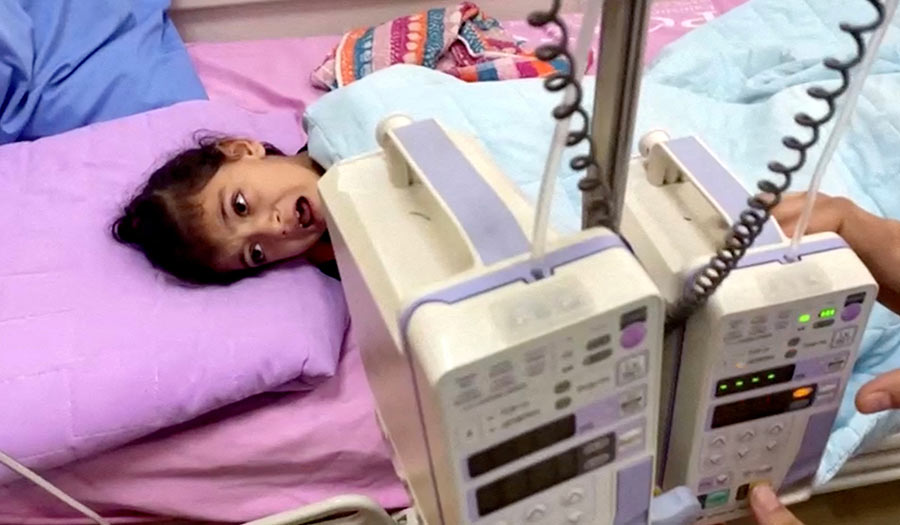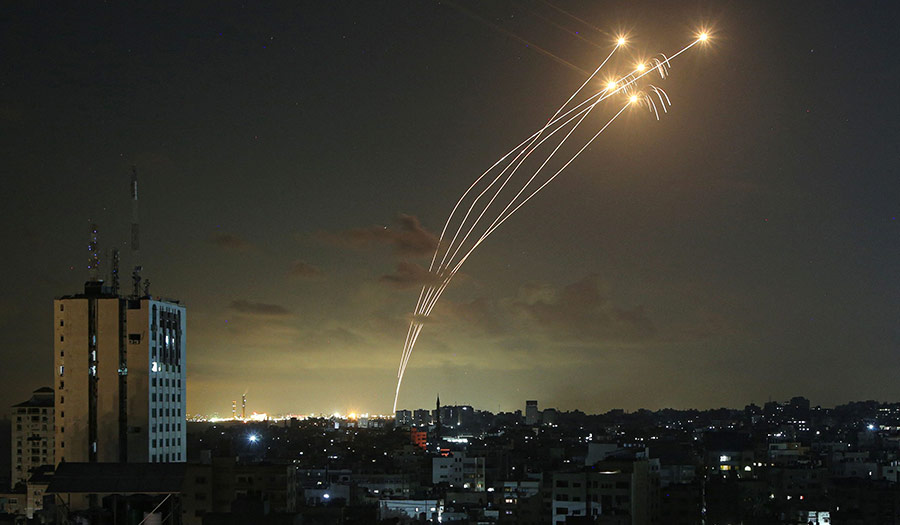 REUTERS TV
REUTERS TV
World News Desk
Learn the why behind the headlines.
Subscribe to the Real Truth for FREE news and analysis.
Subscribe NowReuters – Tahreer Azzam, a nurse at Makassed Hospital in east Jerusalem, has been caring for young, desperately ill Palestinian patients for 16 years.
Since the Israel-Hamas war erupted last month, she now struggles to find them.
Usually, around 100 patients from Gaza receive care each day for complex health needs such as treatment for rare cancers and open heart surgery, at hospitals like Ms. Azzam’s, as well as in the occupied West Bank, Israel and other countries, according to the World Health Organization (WHO).
That came to a halt after October 7, when gunmen from the Islamist group Hamas broke through the Gaza border fence, killing nearly 1,400 people inside Israel and taking some 240 hostages. Israel imposed a complete siege on Gaza, bombarding the coastal enclave and launching a ground offensive. More than 10,000 Palestinians, including over 4,000 children, have been killed, according to health officials in Hamas-run Gaza.
Ms. Azzam and her colleagues have been trying to reach their patients ever since, including checking Facebook to see whether they are still alive.
“We saw a post announcing that one of our child patients had been killed in the strikes. He had been at the department only a week before. He was six years old,” she told Reuters in an interview. “I can’t forget his image.”
The WHO is pushing for the most vulnerable among the chronically ill to be allowed out for treatment. Other countries have offered to take in patients, including Egypt, Turkey and the United Arab Emirates.
Before the war, around 20,000 patients per year sought permits from Israel to leave the Gaza Strip for healthcare, many of them requiring repeat trips across the border. Almost a third are children. Israel approved around 63 percent of these medical exit applications in 2022, according to the WHO. Gaza’s own healthcare facilities have been stretched under a 16-year Israeli-led blockade and repeated rounds of fighting.
“In previous wars, the crossing would close for a day or two, but then the patients were able to return. This is the first time there is such a comprehensive ban on movement and Gaza patients can’t make it out,” said Osama Qadoumi, the supervisor at Makassed Hospital.
“The longer we wait, the worse some patients will get. Many people will die merely because they have no access to treatment.”
Chronic Conditions
The concern is not just about the most complex cases. There are 350,000 patients with chronic conditions in Gaza, including cancer and diabetes, as well as 50,000 pregnant women, according to data from United Nations organizations.
Previously, the majority could get medical care in Gaza, but now the UN says the territory’s fragile health system is close to collapse, battered by airstrikes, a surge in the number of trauma patients, and rapidly diminishing supplies of medicines and fuel. A trickle of aid has been allowed in, while about 80 patients were allowed out.
“We always talk about trauma and rightly so,” said Dr. Richard Peeperkorn, WHO representative for Gaza and the West Bank, in a press conference last month. “But we have to think about the 350,000 patients.”
Some needs are particularly acute. About 1,000 patients in Gaza need kidney dialysis to stay alive, but 80 percent of the machines are in local hospitals under evacuation orders, the WHO said. Gaza’s only cancer hospital is no longer functioning. Israel’s military has told civilians to evacuate northern Gaza, where some of the hospitals are located, as it pursues a campaign to dismantle Hamas. The army says Hamas hides its command centers under hospitals. Hamas denies this.
While the fighting rages, some 400 patients and their companions who left Gaza for treatment before the war have been stranded in east Jerusalem and the West Bank, the WHO said. Many struggle to contact their relatives, with scant cellular service and electricity in Gaza.
“I haven’t been able to tell them how the surgery went,” said Um Taha al-Farrah, who brought her 6-year-old granddaughter Hala to Makassed Hospital on October 5 for her third spinal surgery at the unit. Hala’s mother was denied a permit to accompany her to hospital.
When Hala’s father rings, they manage to speak for a minute or two before the line drops out.
“They ask ‘How is Hala?’ I say ‘Thank God’, and that’s it,” said Um Taha.
Hala misses her parents, and her home. She holds up a drawing of an ice cream, a rabbit and a little girl. “I love mom and dad,” reads a speech bubble by the figure’s mouth.
“I don’t know who is left of my family. I’m sure they are not telling me everything,” said Um Taha.
- Real Truth Magazine Articles
- MIDDLE EAST
 Israel vs. Hamas: 4,000 Years in the Making
Israel vs. Hamas: 4,000 Years in the Making
More on Related Topics:
- Drive to End Global Hunger Has Stalled, UN Warns
- Deceit and Desperation: The Rise of Medical Conspiracies
- Dengue Cases in Americas Surpass Last Year’s Record High, WHO Says
- Older Americans Often Do Not Prepare for Long-term Care
- Obesity and High Blood Sugar Play Ever-growing Role in Ill Health, Study Shows


